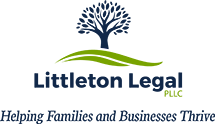When Oklahoma families consider estate planning, most focus on asset distribution and probate avoidance. However,…

What SECURE Act 2.0 Means for Your Retirement Accounts and Beneficiaries: A Strategic Estate Planning Update
The SECURE Act 2.0, signed into law in 2022, introduced important updates to how retirement accounts are managed and inherited. These changes can significantly affect your estate plan, especially when it comes to how and when your beneficiaries must access these funds.
At Littleton Legal, we help Oklahoma families understand how these federal changes impact their overall estate planning goals. Here’s what you need to know.
Required Minimum Distributions (RMDs) Begin Later
One of the most significant changes is the delay in when traditional retirement account holders must begin taking RMDs:
- For those born between 1951 and 1959, RMDs now begin at age 73
- For those born in 1960 or later, the age increases to 75
Why it matters:
Delaying RMDs allows your funds to grow tax-deferred for a longer period. However, waiting longer can also result in larger required withdrawals later in life, potentially increasing your taxable income during retirement.
The 10-Year Rule for Most Beneficiaries
Under the original SECURE Act, the “stretch IRA” strategy was eliminated for most non-spouse beneficiaries. SECURE 2.0 didn’t change that rule but clarified who must comply with it.
Non-spouse beneficiaries such as adult children, siblings, and grandchildren are generally required to withdraw the full balance of an inherited IRA within 10 years of the account holder’s death.
Exceptions include:
- A surviving spouse
- A minor child of the original account holder (only until adulthood)
- Individuals with chronic illness or disabilities
- Beneficiaries less than 10 years younger than the account holder
What this means: Many heirs may face steep tax bills when forced to withdraw large sums over a short period. Planning for these withdrawals in advance can ease the burden on your loved ones. If you expect your children to inherit substantial IRA accounts from you, consider passing them through an inherited IRA trust (also called a stand-alone retirement trust.)
Roth Account Rules Have Improved
Two new changes in SECURE 2.0 make Roth accounts even more appealing for long-term planning:
- Starting in 2024, Roth 401(k)s are no longer subject to RMDs during the account holder’s lifetime
- Employers can now offer Roth matching contributions within workplace retirement plans. These contributions are taxed up front, but grow and distribute tax-free
Why this matters: Roth accounts are a valuable tool for passing tax-free assets to your heirs. These changes provide greater flexibility and fewer mandatory withdrawals.
Your Next Estate Planning Steps
With these updates, now is the time to review how your retirement assets fit into your estate plan. At Littleton Legal, we help clients:
- Consider Roth conversions to reduce future tax exposure
- Use specialized standalone retirement trusts (SRTs) that meet IRS rules while providing enhanced creditor protection for inherited retirement assets
- Update beneficiary designations to reflect both current laws and personal priorities
- Integrate retirement planning with comprehensive Emergency Decision Documents, including Durable Power of Attorney, Health Care Power of Attorney, and HIPAA Authorization
Planning Ahead for a Stronger Legacy
The changes introduced by SECURE Act 2.0 highlight how important it is to stay informed and intentional about estate planning. For many families, retirement accounts are a primary source of generational wealth. Understanding how these accounts are treated under the new law can help you avoid unnecessary tax burdens and ensure a smoother transfer of assets to your loved ones.
Our team is here to help you evaluate your current plan, explore protective strategies, and make sure every part of your legacy is preserved. Whether you are just starting your estate planning journey or updating an existing plan, we welcome the opportunity to support you.
To schedule a consultation, please call our office at (918) 608-1836 or click here to schedule online. We look forward to helping you build a plan that protects your future and the people you care about most.



